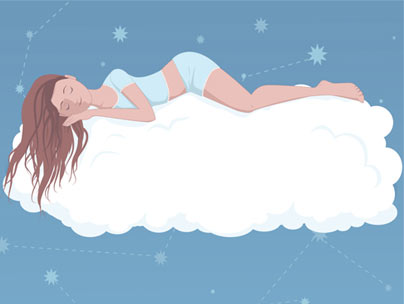Sleep is a necessity, not just for our physical well-being, but our emotional and mental well-being as well. Both quality and quantity matter when it comes to just how much "shut eye" we get a day. But a common question that comes forth is what exactly does happen during these important hours of restful sleep? As we lay on our bed comfortable and resting, is there something more taking place? What about dreams and sleepwalking?
Related Blog: Does Your Mattress Really Impact Your Sleep?
The design of sleep follows a pattern. This pattern consists of 2 portions: Rapid eye movement (REM) and Non-rapid eye movement (NREM) that repeat themselves across a night in a cycle of about 90 minutes.
Let us first take a look at NREM which is broken up into 4 stages and takes up 75% of the night. It starts as we begin to fall asleep:
Stage 1
This is the stage when we are in-between being awake and alert and drifting off into a light sleep.
Stage 2
At the arrival of sleep, we become disengaged from our surroundings, our heart rate and breathing regulates and our body temperature drops.
Stage 3 & 4
These stages occur during our deepest and most restorative sleep. Here our breathing becomes even slower as our blood pressure drops and our muscles relax. Blood supply to the muscles increases and our restful state allows tissue growth and necessary repairs to occur. Energy is also restored and different hormones are released.
Then we have the REM sleep portion which covers the remaining 25% of the night. This first occurs usually about 90 minutes after falling asleep and then recurs every 90 minutes, extending later as the night goes on. During this stage, energy is provided to the brain and to the body and the body itself becomes immobile and relaxed as our muscles turn off. It is also during this stage that our brain is still active which means that dreams occur causing our eyes to dart back and forth.
All of the stages are important and necessary for a full cycle of sleep. Considering the fact that sleep takes up one third of our lives, it is crucial to prioritize it in our schedules for maximum effectiveness. After all, it is what sets us up and supports the other two thirds of our lifetime.





